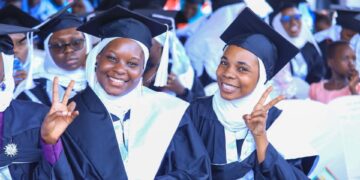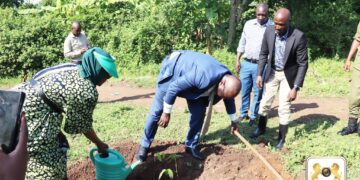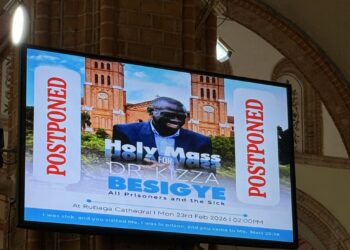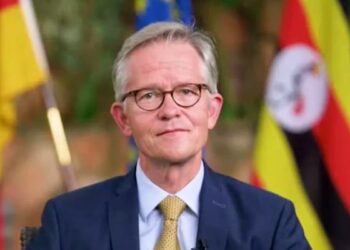KAMPALA
Experts have asked the government to prioritize protecting individual rights to privacy while it seeks to rollout digital tracking systems in motor vehicles and motorcycles.
This was during a Pre-Moot Conference on Uganda’s digital number organized by Unwanted Witness at Hotel Africana in Kampala on Wednesday.

Last year, government announced it was to install digital tracking systems on all new and already in use motor vehicles and motorcycles in the country one lead to combating crimes and promoting national security. The project was initially expected to be rolled out in March but it was postponed to July 1 and later re-postponed to early November following a petition to parliament by traders under the Kampala Capital City Traders Association (KACITA) over high costs incurred by motorists. According to the traders, the Shs 714300 charged to acquire digital number plate is so exorbitant compared to the fee charged for old number plates
Security minister, Jim Katugugu Muhwezi also told the parliamentary committee on physical infrastructure that the postponement was due to logistical challenges faced by Joint Stock Global Security (JSGS), the project implementer.
He revealed that the ministry of finance participated in the financial model of the digital number plates and the the government did not invest any monies in the project calling for the recovery of the money by the investor.
“New vehicle and motorcycle owners will be pay shs714,000 for the the digital number plates while already registered road users will be required to pay shs150,000 and shs50,000 for vehicles and motorcycles,” minister Muhwezi said in August.
Speaking at the Pre-Moot Conference, Hon. Justice Geoffrey Kiryabwire said surveillance is both a human rights abuse indicator and right to privacy violator. He urged government to ensure a vital interplay between safeguarding the nation and leveraging surveillance.
“Surveillance can be used to track down illegal activity and still surveillance can be used to lead to the abuse of human rights, the balance on how to handle privacy and national security and other human rights is crucial,” he said

Justice Kiryabwire further warned against offline surveillance which he says creates fear among individuals that leading to self-censorship.
Dorothy Mukasa, a digital and human rights activist and Executive Director of Unwanted Witness said there is a gap between balancing personal privacy and national security.

She said although surveillance should be emphasized due to the high crime rate in the country, the government should be transparent in handling this process as well as giving assurances to Ugandans on the safety of their data during and after its collection.
“When government planned the mass rollout of digital number plates, I had concerns. At Unwanted Witness, we’ve been monitoring surveillance in Uganda. With the Digital Number Plates, we sought to determine if there was a corresponding legal framework for this project,” she said
Dr. Anthony C. K Kakooza, advicate and academician said prioritizing consent in personal data handling is crucial in tech advancements.
“Over 5 trillion shillings is lost every year due to road accidents this data must be provided to security agencies like CMI, the Uganda Police so as to fight the crime rate,” Dr. Kakooza said
He opines that setting up data policy will enable the government and security agencies to ensure that safety and security of people is guaranteed.
On the other hand, Robert Kisakye , a licensing officer at the ministry of works and transport commended Unwanted Witness for putting the Digital number plates discussion in the spotlight.

“Your efforts aid in receiving feedback, helping us navigate challenges and refine implementations of the Digital number plates,” said Kisakye.
The Pre-Moot Conference was organized under the theme: “Balancing privacy and National Security. Navigating the impact of surveillance laws and individual freedom.” The event was a precursor to the Unwanted Witness Private Moot Court Competition slated for 21 and 22 September, 2023, at Makerere University Law School. The competition involves at least 15 law training universities in Uganda.







































